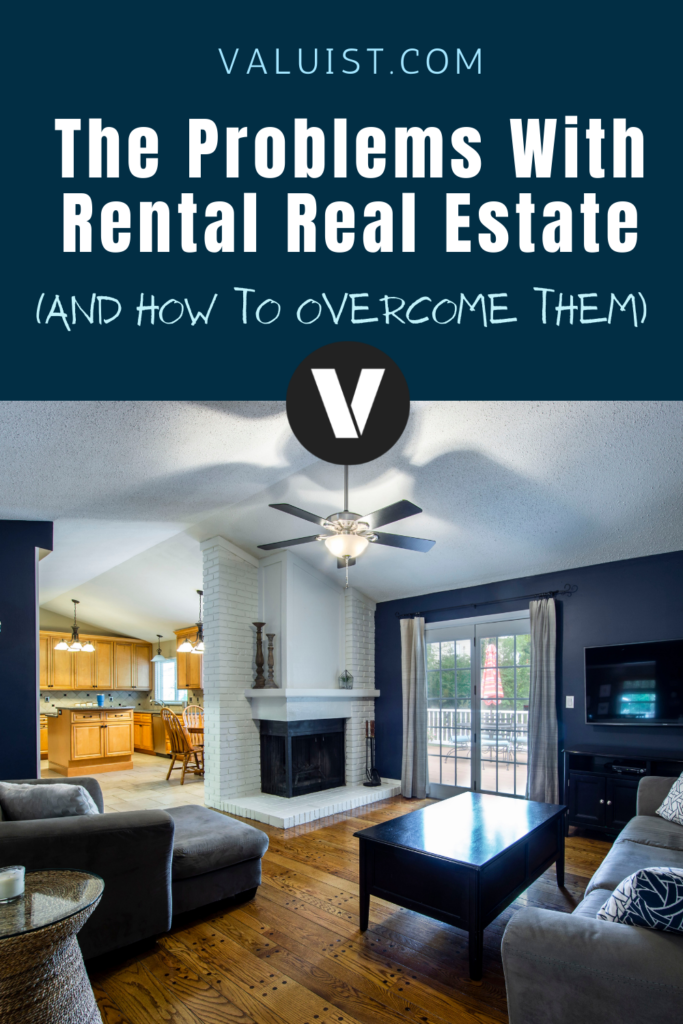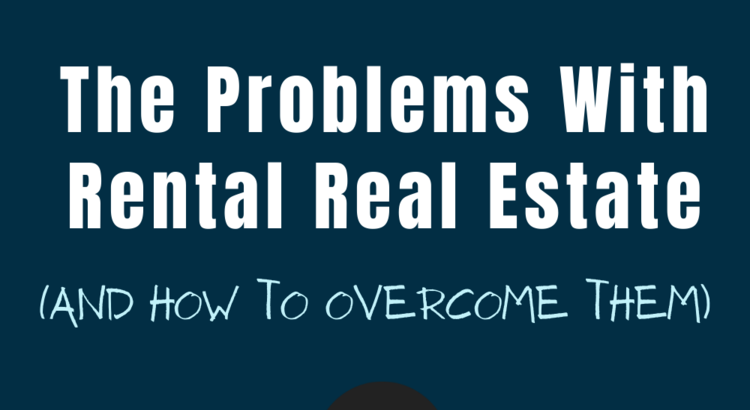There are typically two schools of thought when it comes to the prospect of owning a rental property: It’s either a no-brainer, or inherently a nightmare. It’s not surprising that opinions about rental real estate are often so extreme, owning rental property can significantly increase your net worth, but the negatives can be so negative that they might traumatize you.
After recently helping to manage my family’s rental property in the mountains, I started wondering if my wife and I could rent out our house, instead of selling it when we decide to move. Thanks to low interest rates and a booming stock market, achieving that never seemed so possible. However, when I brought it up to my wife, she was hesitant to say the least. Something about renting a single family home in the suburbs seems like a long-shot. And, coupled with the horror stories her aunt told her about a former rental property, it looked like my plan might be dead on arrival.
But I’m not giving up, not yet. I am convinced there is money to be made in rental real estate, so long as I’m aware of the obstacles and have a plan to overcome them.
The biggest obstacles to overcome with rental property
Finding good renters, and being a good landlord, is challenging
The Problem:
Most rental nightmares (like skipping town without paying rent, cement in the toilets, destroyed carpets) I’ve heard are essentially due to conflicts between people. The landlord/tenant relationship can be a temperamental one. Renters aren’t always kind to rental properties, or timely with payments, and even when they are, the best ones don’t tend to stick around forever. The worst renters can cost you thousands of dollars in repairs and in the time that your property is off the market. On the other hand, property owners can be overreaching, slow to make repairs and unwilling to make reasonable upgrades over time, leaving renters feeling more like prisoners than tenants.
Potential solutions:
Due diligence:
Ultimately it’s your choice who you rent to and there are several steps your can take to locate good renters. An intensive background check will give you a lot of the information you need:
- Credit history – Do they have a history of good credit?
- Rental history – Do they have a history of consistently making rent payments?
- Employment – Are they employed in a stable career and industry?
- Income – Can they afford rent long term?
- Criminal background
The best renters are respectful and align with your lifestyle choices, or at least what you envision for your property. You can take note of a potential tenants appearance, mannerisms and the cleanliness of their vehicle, if you meet in person.
Make your property a short term rental
Another way to avoid the inter-personal conflicts that often arise with long-term renters is to set up your property as a short-term rental. If you live in an area frequented by tourists, or in a particularly scenic spot, a short term rental is a great option. Tenants are temporary, rents are daily and higher and getting new renters is often as easy as joining a well-frequented platform like VRBO or AirBNB, among others.
Align your expectations with reality
Whenever you are dealing with people in a business environment, try to put yourself in their shoes. What would you expect as a renter? Your tenants want to live their lives without even knowing you exist, however, you own the property and it’s your obligation to ensure that your investment is protected, so striking a healthy balance with your tenants can be difficult.
Perfect your rental agreement
Your contract is crucial in outlining expectations. All discussions about what’s right or wrong must originate from language in your written agreement, signed by all parties. It’s worth your time to have a competent attorney draft your contract, especially since you rely on it so heavily.
Use a property management company
Though it may cost you 10% or more of sales, if you already have a job, you will sleep easier not having the second job of running a rental business.
Your property might not be an ideal rental
The Problem:
Not all good properties make for good rentals. The rental market is more active for an apartment close to a city, than for a single family home in the suburbs. Further, your property might not be well-suited to the needs of the renters in your area.
Potential solution:
Understand the market and market your rental property correctly
Understanding what attracts renters to your location is crucial in order to formulate the best marketing strategy for your rental real estate. If you live in the suburbs near a major city, market to families who commute to the city for work. Providing amenities that families need, such as bathtubs, laundry machines the acceptance of pets etc., will make it easier to secure the appropriate renters for a neighborhood setting.
If your property is located in a college town, direct your marketing efforts to places where students hang out and don’t expect to attract single families as often. Depending on what you value, that may be a benefit, collecting smaller amounts from multiple sources is often more consistent than much larger amounts from a single source. However, having multiple unrelated renters also means more cars, and a higher probability that your property will be abused. It makes sense to require a co-signer for anyone who has not established credit and to expect a damage deposit and first/last month rent, up front.
The housing market and rents can fluctuate
The Problem:
Though housing prices and rents have increased over time historically, in the short term a housing market crash can decimate property values and in the longer term, significantly decrease rents.
Potential solutions:
Be flexible
Fortunately, along with property values, rents typically rise over time. In fact, rents have even been shown to increase during market crashes, at least short-term ones. In a more severe crashes, however, rents may go unpaid altogether. If you prepare for the worst by building up healthy savings during prosperous years, then you will be better able to stay afloat during tough times.
Further, be prepared to sell the property if you find that you are having trouble finding good tenants. Knowing the true ROI (return on investment) of your property, which includes attention to revenue and expenses, will help you determine when it may be time to sell. Treat your rental as you would a new business, because if you’re not organized and cost-conscious, like any other venture, your business can quickly fail.
Selling a rental property can put you in an expensive tax situation
The Problem:
Owning a property as a primary residence provides tax benefits that owning a property for investment does not, most significantly the capital gains exclusion. The capital gain exclusion is a tax benefit for those that live in their homes for 2 out of the last 5 years it has been owned, and meet other requirements, allowing homeowners to exclude from taxable income $250,000 (if single) – $500,000 (if married and filing jointly) of gain from the sale their homes.
When you sell rental real estate, because it is in service as an investment, the capital gains exclusion no longer applies and you become subject to the capital gains tax rate of 0%,15% or 20%, depending on your tax bracket and filing status. Further, selling a house will likely move you u a tax bracket or two, causing you to lose a huge portion of your profit.
Potential solutions:
Convert your property into a residence before you sell
This is pretty straightforward, just start living in the property for an additional two years and avoid attempting to exclude the part of the gain attributable to depreciation deduction and you can requalify for the capital gain exclusion.
Do a 1031 exchange
Simply stated, a 1031 exchange allows investors to sell a rental property and buy a similar property (any other rental), opting to pay taxes only after the exchange is made. The key to success with a 1031 exchange is timing, investors have only 45 days from the date of the property sale to find a replacement property and close within 180 days.
Tax loss harvesting
Tax loss harvesting is just a fancy way of saying, offsetting your gains with other loses. If, for example, a taxpayer has a stock market loss of $100,000, she can choose to sell off a portion of her stocks to offset a taxable gain of $100,000 in real estate.
Summarizing the benefits of having rental property
Whether or not to own rental real estate depends on a number of factors but perhaps the most significant variable is you. Will you be able to run your rental like a business, make repairs quickly and affordably when necessary, weather the storm when rents are inconsistent and deal with tenants in a mature and professional fashion? If you can, and your property is ideal for a rental, having others pay off your mortgage is incredibly valuable. You just need to remain flexible and have an exit strategy that hopefully also allows you to avoid a tax hit.



Let’s not forget the depreciation factor for residential real estate of 3.636% for 27.5 years. This can be a great benefit for individuals in higher tax brackets. Also, taxes on a 1031 exchange are not payed after the exchange rather still deferred.
Excellent points Bill. The depreciation factor is powerful, so long as it isn’t recaptured and 1031 exchanges can definitely be used to continue deferring tax, until you have to sell!